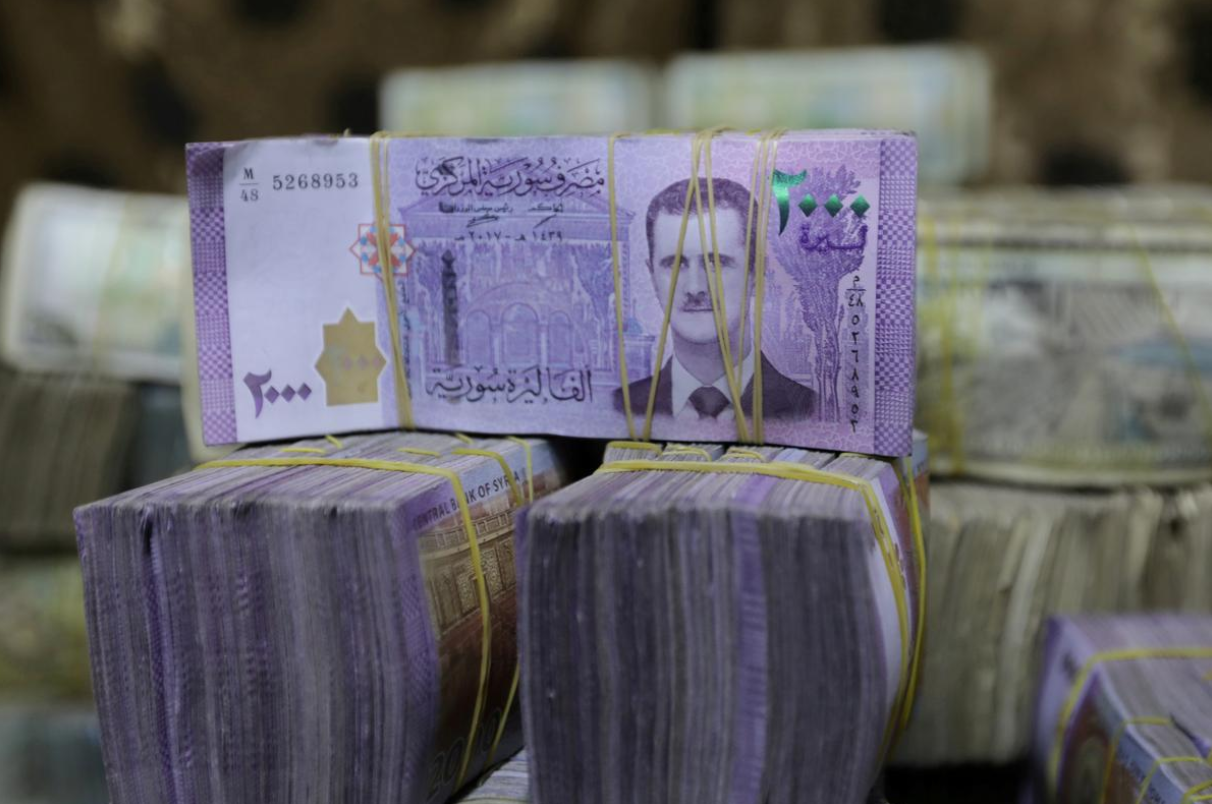The US and European Union’s latest round of sanctions, known as the “Caesar Act,” aims to cut Bashar Al Assad’s final foreign economic lifelines.
Lawmakers passed the legislation in December 2019 but it came into force today, June 17. They named the act in honor a military photographer codenamed “Caesar” who infiltrated Syrian jails where he took over 50,000 photos of torture and death.
The sanctions are meant to “compel the government of Bashar al-Assad to halt its murderous attacks on the Syrian people and to support a transition to a government in Syria that respects the rule of law, human rights, and peaceful co-existence with its neighbours.”
In reality, Syria’s economy is in dire straits. The currency has crashed in the wake of the impending sanctions, driving up the cost of living for ordinary citizens while the regime continues unphased.
An estimated 80% of Syrians were already living below the poverty line prior to the recent economic decline, which has only intensified their struggle. Their situation is so distressing that thousands of Syrians took a huge risk, returning to the streets for the first time since 2011 to protest the worsening conditions in towns like Suweida, Daraa, and Idlib.
UN envoy’s report
In his latest briefing to the UN Security Council, UN Special Envoy on Syria Geir Pederson reported that the Syrian pound has depreciated at lightning speed, driving up food and medicine prices and disrupting supply chains.
“I heard a new level of alarm at the dramatic collapse in economic conditions throughout the country. It is easy to understand why,” Pederson told the Security Council. “During just one week during the reporting period, the Syrian lira’s market rate depreciated more than in the entire nine years prior.”
“The economic crisis is hitting every part of Syria, regardless of territorial control: from Damascus and the southwest … to Aleppo and the northwest … and to the northeast,” the UN envoy explained.
The devastating financial and political crisis in Lebanon is one factor that has driven its “twin” economy in neighboring Syria into a spiral of decline, Pederson said. The collapse is also gaining momentum from the fallout from the country’s civil war, long-running structural issues with the economy like poor governance and corruption, the COVID-19 pandemic, and now the Caesar Act.
“In recent weeks, we have seen many Syrians begin to express new fears – even panic in some quarters. We have heard of shops and pharmacies forced to close, unable to cope with the recent volatility; of jobs being lost; of remittances drying up. In some areas of northwest Syria, reports have emerged of locals increasingly using foreign currencies,” Pederson said.
The new sanctions effectively penalise any country that does business with any company in Syria. As a result, they cut off the few trade ties Syria has left with its primary trading partner Lebanon, for one – but also with European and Gulf States.
UNSC response
Security Council permanent members Russian and China spoke out against the sanctions on June 16.
China called the move to forge ahead with the Caesar Act in light of the COVID-19 pandemic and ensuing global and economic crisis, “simply inhumane.”
Meanwhile Russia, who supports the Assad regime, told the Security Council “that the purpose of these measures is to overthrow the legitimate authorities in Syria.”
The US has been imposing sanctions on Syria since 1979, and gradually ratcheted up the restrictions since civil war broke out in 2011. Nine years on, they have had minimal effect on Assad, and failed to trigger the downfall of his bloody dictatorship.
Sanctions have proven ineffective time and time again and, often missing their target, devastate the lives of the everyday citizens they are supposed to be helping.
It is unlikely the Caesar Act will be any different or achieve the regime change it so boldly hopes to bring about, and instead will be the catalyst for more pain and suffering for the Syrian people.


